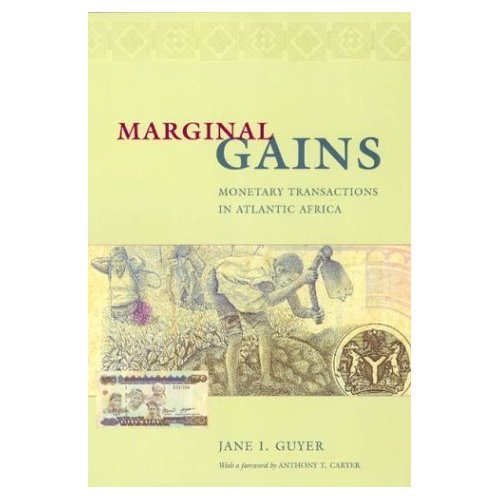The economic anthropology of Jane Guyer, concentrated on Africa’s western and equatorial regions, finds rich expression in this collection of the Lewis Henry Morgan lecture series delivered at the University of Rochester some fifteen years ago. Guyer’s methodological reflexivity brings her implicit and explicit critique to bear on both traditional anthropology and traditional economics, the result of which is a nuanced, multivariate logic of exchange and decision-making that brings close contextualization to the fore of questions that might otherwise veer impossibly into the abstract. Historically grounded and empirically driven, Guyer elucidates the curious interplay between formal and informal markets in Atlantic Africa, particularly the role of circulation of multiple currencies at once. Continue reading
Tag Archives: money

Internet – Geography, and Africa Introduced
We expect no clean equivalence between infrastructure, labor, capital, and internet development. Still, we know that the growth of a robust modern internet takes vast amounts of time, skilled labor, and knowledge — all elements of advanced capital. So, when we consider the rise of today’s African internet, we must ask, first, who builds it — and then, where its infrastructure overlaps or clashes with existing geographical patterns. Heavily visual organization and logic help think through these issues of backbone, traffic, and investment. Their combination leads to some interesting insight to the specific challenges facing the continuation of Africa’s internet-building. Continue reading
Internet – On the Markets
We turn now from contextual summaries of broad topics to more specific analyses of focused problems. The case in point this week is the curious interplay of market and economic themes in discourses and studies of the internet. There are several fascinating phenomena associated with the rise of the internet as a platform for trade as well as communication and computation. These, however, have roots that run deeper than their own emergence, in the economic and historical conditions that undergird the internet’s development. As trade and commerce proliferate online, they mimic (at least at first) the structure and behavior of their non-internet predecessors, which themselves must shift or extend their positions to accomodate this competition. As internet markets continue to grow and find their own forms, their effects on their non-internetted counterparts deepens. And as financial instruments and economic models become more closely attuned to internet machinations, it becomes easier – from a cultural or social standpoint – to overlook the most obvious historical and global correlations to this situation.

A silly image for a spammy post on webtech-team.com